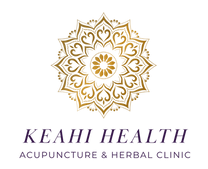Dad flex: how fast you can shop at Costco 😂
- karly40
- Jun 15, 2023
- 3 min read
Happy Father’s Day to all the many forms that “Fathers” come in!

Earlier this month, I got to host my very own barbecue to celebrate Maya’s first ballet recital. Of course, I asked my dad to “stoke up the barbie” (yes, in an Australian accent) as I didn't want to burn my face off. I need my face.
So was Popeye right? Does spinach build muscle? What does build muscle and why is it important? Healthy longevity and graceful aging, my friends!
To me, “healthy longevity” means being able to do everything I want to do at any age. A lofty goal? Probably! Nevertheless, I aim to feel as good as I can for as long as I can and I’ve learned recently that building and maintaining muscle will help me do just that!
Muscle has been called the “organ of longevity” and it makes sense. For instance, we know that having less skeletal muscle is a risk-factor for osteoporosis, which could lead to broken bones. Muscle is also known to be an endocrine organ, thus affecting hormone secretion. It also senses nutrients in our body! Now that I've researched muscle, I feel pumped!
And what is the connection between dietary protein and muscle maintenance? Our digestive tract literally senses when we eat protein and its receptors can tell when we've met the minimum requirement, thereby signaling that we are satiated. This mechanism tells our brains/body that we can stop eating because we've had enough protein to maintain our muscles! Perhaps by eating sufficient protein, we'll be less-prone to overeat...not that I do.
And I’ve also been learning that people over the age of 40 need to do more to maintain muscle because our protein sensors get, well, tired. One way to do that is by adding resistance training to your work-outs. Start simple by adding a few push-ups and sit-ups to your stretching routine. Another way is by eating high-quality protein.

But what's my dad's secret? Dad has always impressed me with what I lovingly call his incredible "old-man" strength. Let me explain: the last time I saw Dad in a gym was almost 30 years ago when I was playing basketball with the Chinese-American Citizens Alliance (CACA). He and another player's dad, Mark, coached our girls basketball team for over 10 years. Each summer, all of the basketball families would go to Seattle for our rival’s tournament.
One year, my dad tried a work out with Mark in the hotel gym. Mark was and still is a power-lifter! Dad tried his best to keep up and the next day, he couldn’t walk. I haven’t heard of him stepping foot in a gym since.
Yet, my dad maintains a ton of muscle mass! I’m not sure how he does this but he’s always outside working on something: projects, building sheds, planting and replanting, painting, etc. And to mom’s chagrin, he’s not good at taking supplements or drinking water.

I think my dad maintains muscle in a few simple ways:
1. He's outside rain or shine, getting tons of vitamin d (a hormone that runs 10% of our bodily functions and helps muscles stay strong).
2. Until he's totally exhausted and finally sitting in his favorite chair in the evenings, dad stays active in a low/no-intensity way.
3. He lifts and pushes and builds everything he can, usually on his own (not always a good idea, says his back)
4. He eats everything. Seriously. No food is off-limits.
5. And thanks to his c-pap, he gets good sleep.

So what can you do if you want to build up your skeletal muscles? Here are some ideas:
Eat the minimum amount of high-quality protein that you need at each meal to stimulate the creation of skeletal muscle. Most sources say it’s 30 grams.
What’s high-quality protein? High-quality protein means the source has all of the amino acids you need to build and maintain your skeletal muscle. Look for leucine in proteins or amino acid profiles.
How do I get high-quality protein in my diet? The fastest way is to eat grass-fed/organic animal protein. But there are plenty of vegetarian and vegan pro body builders out there! Great forms of veggie protein can be found in organic soy, peas, lentils, beans, quinoa and raw nuts. And this is a great time to say, if you want to make any diet, exercise or lifestyle changes it’s always best to consult with your primary care provider first.
And if you can’t get high-quality protein in? Add branch-chain amino acids plus collagen powder to your bottle of water. You could have two or three doses a day just to make sure you’re getting what you need. Click here to see my favorite BCAAand collagen.
How do I know how much protein I need every day? Again, this is a general guideline but most sources say to get your preferred body weight in grams of protein a day. So, let’s say you weigh 150 pounds, you would want 150 grams of protein a day to build and maintain muscle. I know that sounds like a lot but there's a lot of research behind it. Click here for a simple macro calculator.

Thank you for doing this with me!

PS. Apparently, spinach does have a lot of protein! It's #2 on the list of high-protein veggies!





Comments